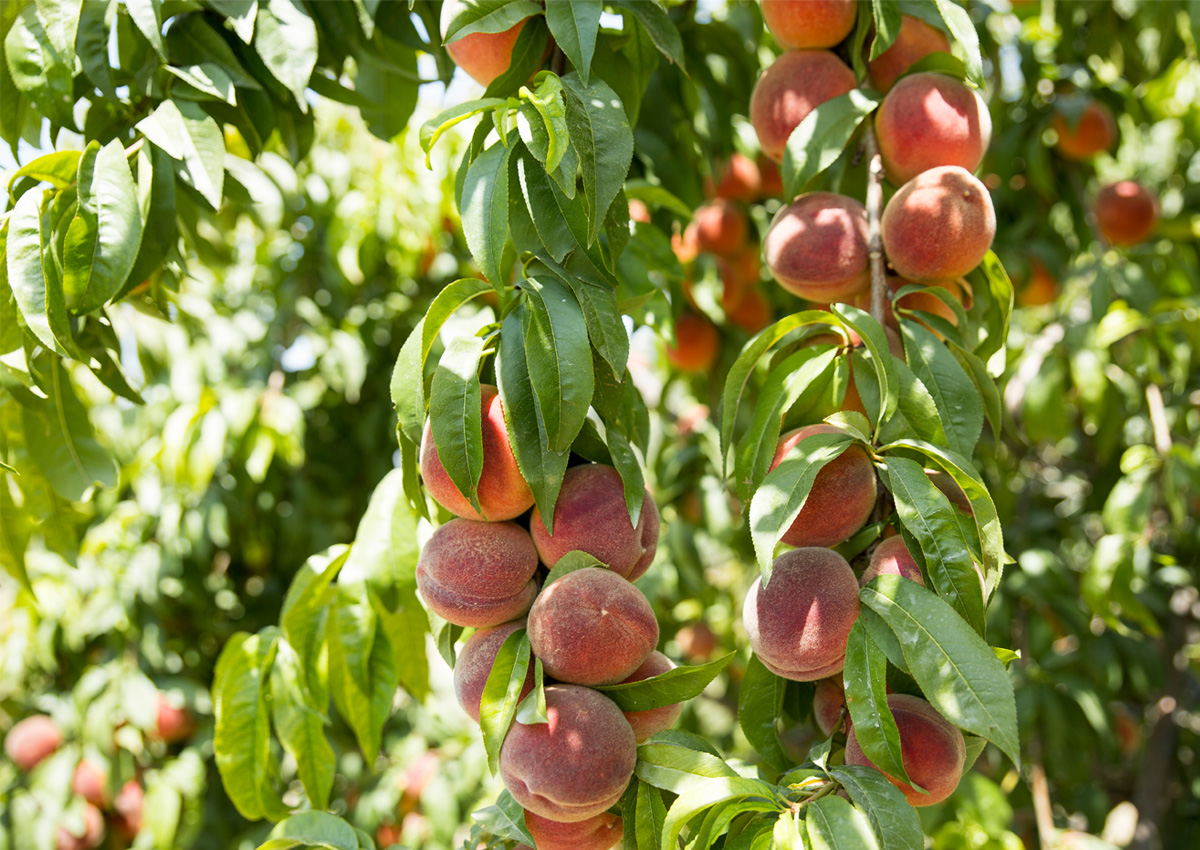
Gene Discovery to Help Peaches Adapt to Climate Change
March 17, 2021| |
A research team led by the Boyce Thompson Institute (BTI) has identified genes that could enable peaches and their wild relatives to tolerate stressful conditions and adapt to climate change.
The research team examined the genomes of 263 wild relatives and landraces of peach from seven regions in China. Of these, 218 came from the National Peach Germplasm Repository of China and 45 from the Tibetan Plateau. They conducted genome-wide environmental association studies on the samples and identified more than 2,700 spots in the genome that are linked to 51 environmental factors affecting the local climates of those regions. Genes responsible for peach's tolerance to multiple environmental factors, such as cold, drought, and ultraviolet (UV-B) radiation levels at high altitudes were identified.
The researchers found that peaches from a region with extremely low winter temperatures had a genetic variation in the histidine phosphotransfer protein AHP5, suggesting the variant gave the peach tree the ability to resist cold. Plants from a very arid region harbored variants in multiple genes in the abscisic acid (ABA) biosynthesis pathway that regulates drought stress responses, and in 12 genes on pathways that regulate starch and sugar metabolism. They found that in response to drought stress, ABA-induced higher levels of a sucrose-producing enzyme, which explains why peaches from this region have consistently higher sugar contents than fruit from less arid regions.
For more details, read the article on the BTI website.
| |
You might also like:
- Almond and Peach Genomes Explain Differences of Fruits and Seeds of these Closely Related Species
- Scientists Sequence Peach Genome
- Pocket K No. 50: Biotech/GM Trees
Biotech Updates is a weekly newsletter of ISAAA, a not-for-profit organization. It is distributed for free to over 22,000 subscribers worldwide to inform them about the key developments in biosciences, especially in biotechnology. Your support will help us in our mission to feed the world with knowledge. You can help by donating as little as $10.
-
See more articles:
-
News from Around the World
- Gene Discovery to Help Peaches Adapt to Climate Change
- Study Shows Rising Temperatures Hurt Rice Yields
- Bacterial Strains Isolated in International Space Station Could Help Grow Plants in Mars
- Experts Highlight Importance of Scicom and Farmer Adoption in Building Knowledge on Biotech
- Invasive Weed Extract Could Help Treat Cancer and Type 2 Diabetes
- Food Security as Important as National Security: Punjab Agri Minister
- New South Wales Lifts 18-year Ban on GM Crops
- Discovery Ends Long-Standing Photosynthesis Controversy
-
Research Highlights
- OsMBD707 Overexpression Leads to Changes in Rice Growth and Development
- Multiple Statistical Analyses Show Compositional Equivalence of Bt and non-Bt Rice Varieties
-
Plant
- ISAAA Webinar: Innovative Tools for Crop Breeding
-
Health
- Study Reveals SARS-CoV-2 Jumped from Bats to Humans without Much Change
-
Read the latest: - Biotech Updates (September 18, 2024)
- Gene Editing Supplement (September 11, 2024)
- Gene Drive Supplement (February 22, 2023)
-
Subscribe to BU: - Share
- Tweet

